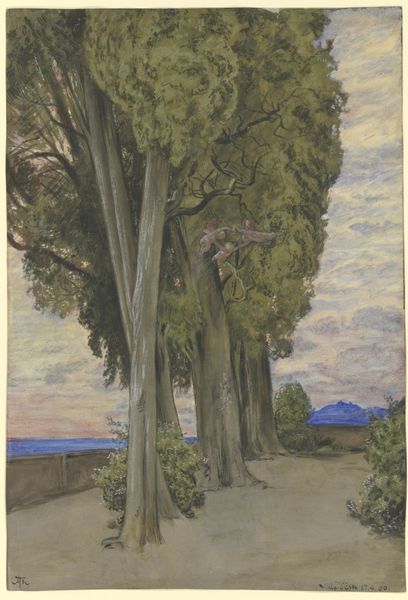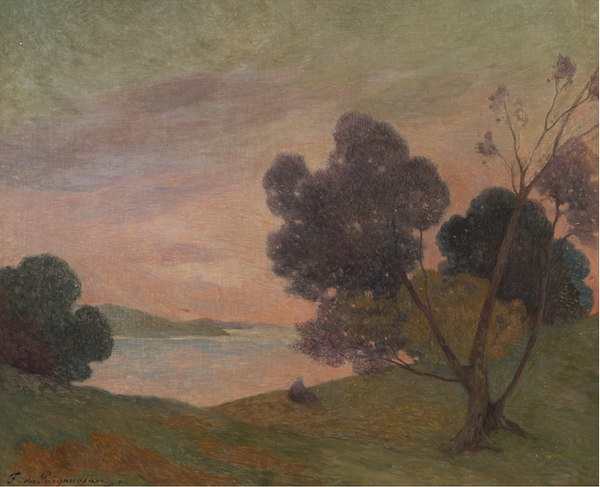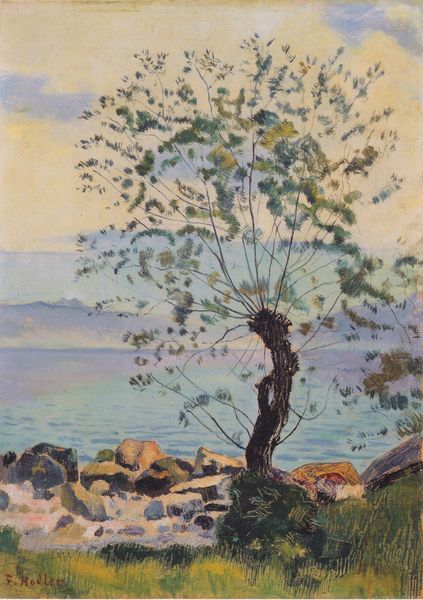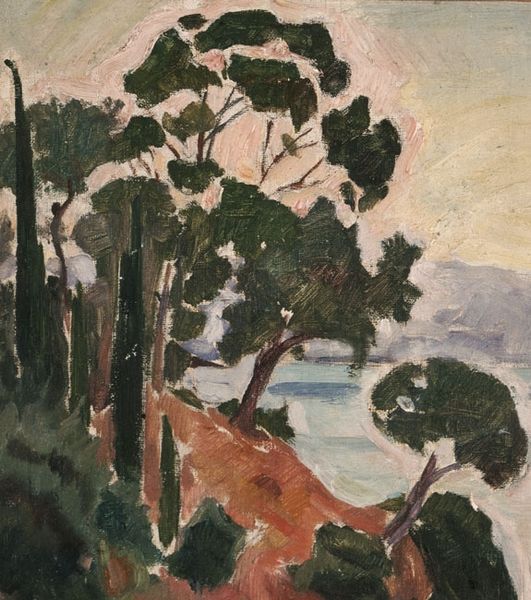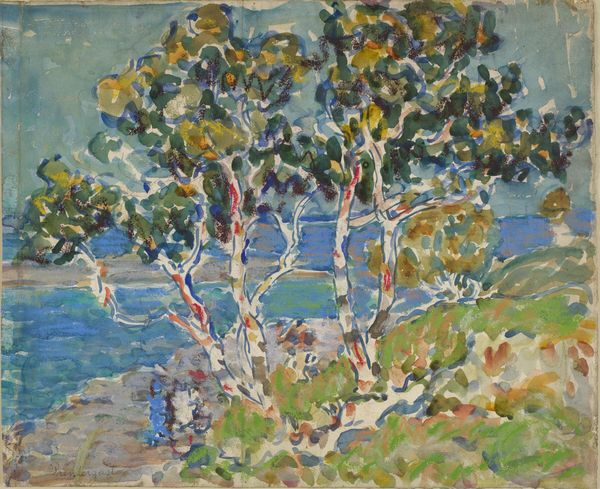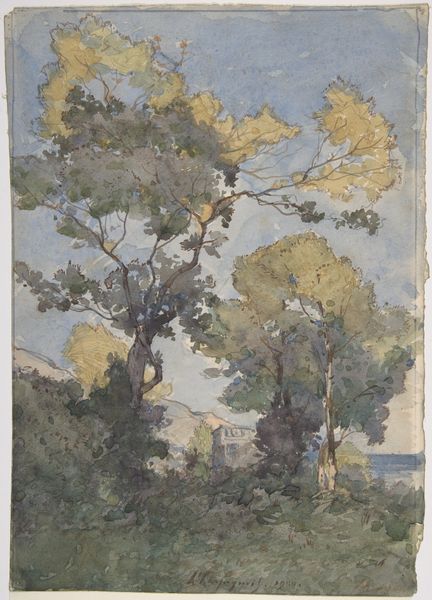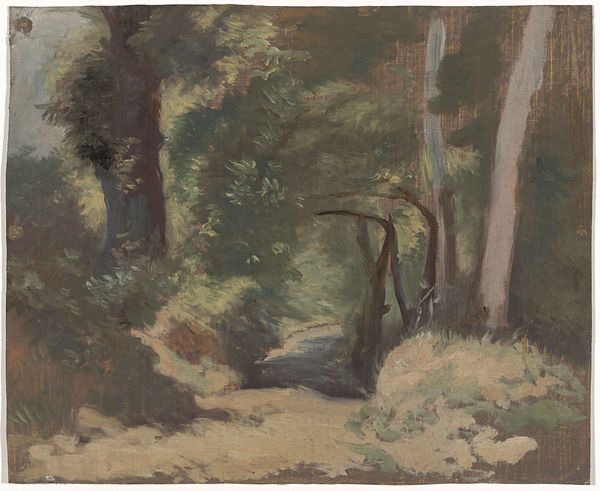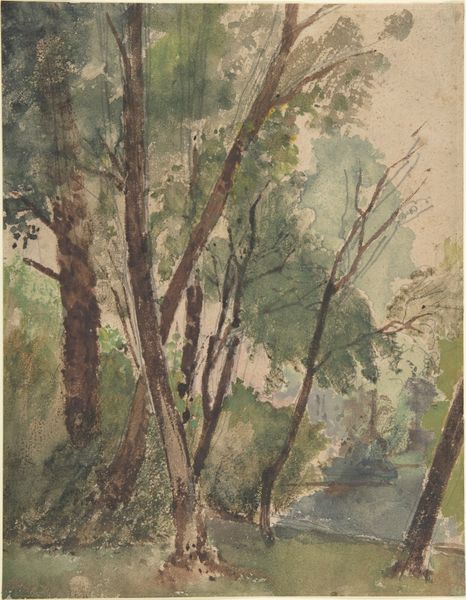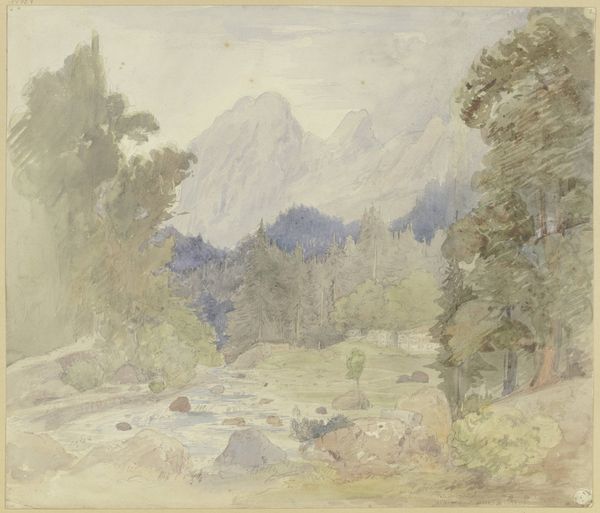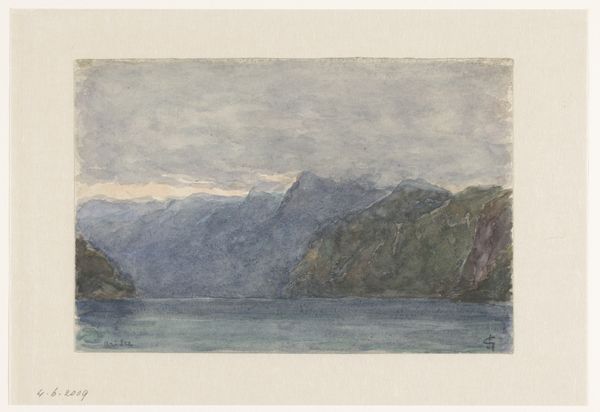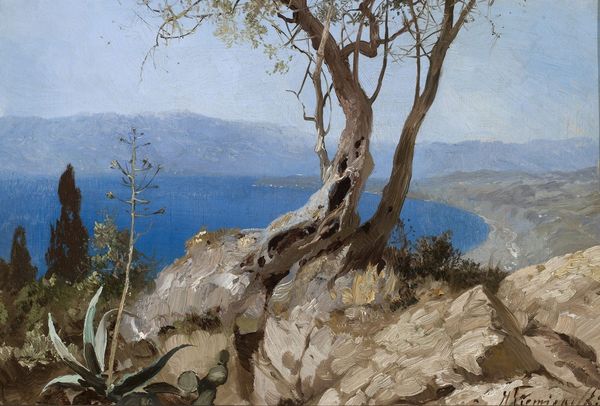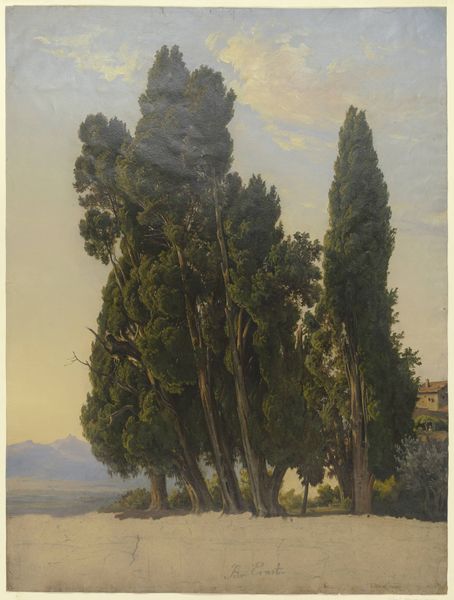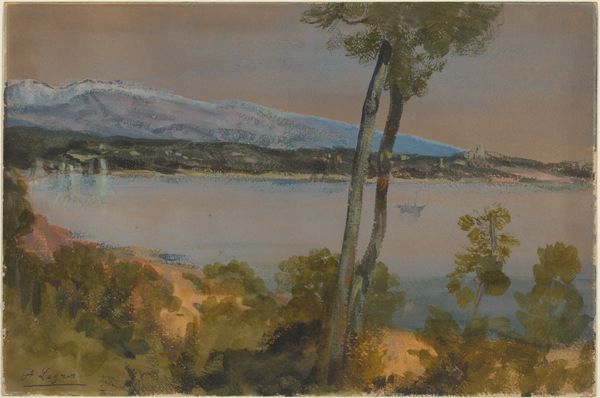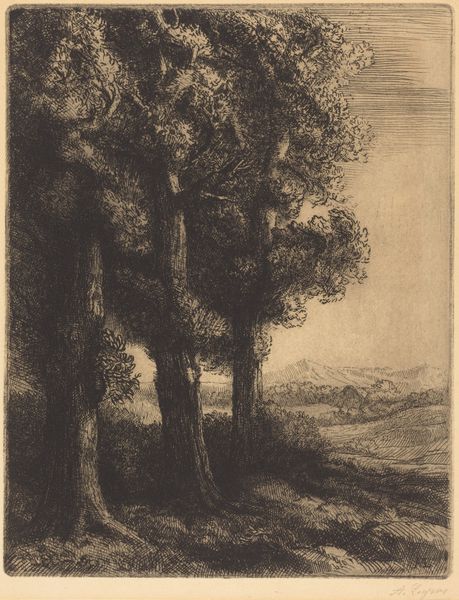
drawing, plein-air, oil-paint, canvas, impasto
#
drawing
#
plein-air
#
oil-paint
#
landscape
#
figuration
#
oil painting
#
canvas
#
impasto
#
romanticism
#
realism
Copyright: Public Domain
Curator: It’s so calming; almost melancholy. There’s a stillness that emanates from the canvas. Editor: Well, let's consider this oil on canvas titled "Olivenbaumgruppe an einem italienischen See," or "Olive Trees by an Italian Lake". It’s attributed to Fritz Hauck and presently resides here at the Städel Museum. What strikes me is the apparent plein-air application of paint here. Notice the visible impasto technique in those expressive, quick strokes rendering the olive trees. It points to a specific method of production. Curator: I see what you mean about the materiality, but these colors – the muted blues and greens – they speak to a kind of Romantic sensibility, almost dreamlike. The scale emphasizes the monumentality, those majestic olive trees dominating the foreground. It feels like a confrontation between nature and human presence with the hint of structure in the far distance.. Editor: Precisely. Think about the context of landscape painting, how it shifted through the 19th century. This image likely wasn't only about aesthetics. Olive groves in Italy have historical significance related to trade, agriculture, and the economy, specifically small productions and familial labor and local marketplaces.. To what extent does it allude to this? Curator: True. And how does this intersect with notions of picturesque tourism? Were these olive groves romanticized landscapes accessible only for wealthy travellers? I guess I also consider who benefits from these images of natural beauty? Who is buying and consuming it? Editor: Good questions. Analyzing those elements alongside Hauck's process—the labor of transporting materials, choosing the spot, engaging in that direct, plein-air interaction – informs our understanding of the artwork's total meaning. The way Hauck chooses his palette of colors, and arranges the scene… Curator: Right, but these colours chosen aren't neutral either - it feels idealized and calming almost, in contrast to labour involved. It invites us to reflect on its place and presence in our world as opposed to Hauck's world. Editor: Absolutely, let’s remember, the choices made during production affect the work. From selection of the materials to choosing that day by that lake and how he has made a permanent document through process, this painting carries its own history. Curator: Precisely and in doing so allows us to unpack our historical relationship with similar paintings.
Comments
No comments
Be the first to comment and join the conversation on the ultimate creative platform.
